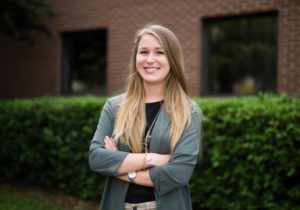

Hannah Hollinger
- February 22, 2016
- 2:12 pm
Crossroads project quartet joins student sustainability workshop
Taking action is not always simple. One may know that it is morally right to recycle, but its inconvenience leaves the individual throwing plastic bottles into the trash day and day again. What many of us have come to realize is that availability of information does not always lead to action. A discussion-based workshop this morning focused on this concept involving our knowledge of complex environmental issues, sponsored by the Department of Philosophy Ethics Center Initiative and the Office of Interdisciplinary Studies. Brittany Sellers, a Graduate Student in the Human Factors Psychology Program, led the discussion. She noted how her “Go Organic, For The Environment, For You!” bumper sticker typically did not convince others to buy organic, despite her providing availability of information. She spoke on how sustainability messages often leave people with the “chilling effect” of feeling hopeless or insignificant. How do we, as humans of our environment trying to make a change, inspire action instead of overwhelm?
Attendees consisted of students and awareness project representatives, such as the Crossroads Project members. Discussion bounced amongst the room regarding the struggle of credibility, overwhelm, shock, and inspiration of environmental documentaries, the separation of ourselves from larger issues, and the abstractedness of climate change.
The Crossroads Project members could relate to these struggles in the creation of their stage performance. The string quartet strives to present the audience with an inspiring takeaway from their poetic integration of arts and sciences, lasting roughly 75 minutes. The members reflect on the difficulty of covering “everything” in this short time frame. They have changed the performance’s ending a number of times based on audience’s feedback. Despite this, they have found that the message’s receival varies on individual disposition. Some absorb the information and feel frozen, others moved. There is no “one size fits all” approach to relaying environmental information. The performance begins with visualizations on the success and beauty of natural systems and leads into spoken word on the biosphere’s water and the underlying pieces of forage. The members worked alongside with a composer familiar on environmental issues in order to chose the appropriate musical pieces in creating the overall message of sustainability.
With that, workshop attendees agreed that we, as individuals, cannot simply cover “everything.” Rather, we should all work together on promoting activism within these issues instead of separately. The student workshop was followed by a faculty workshop.